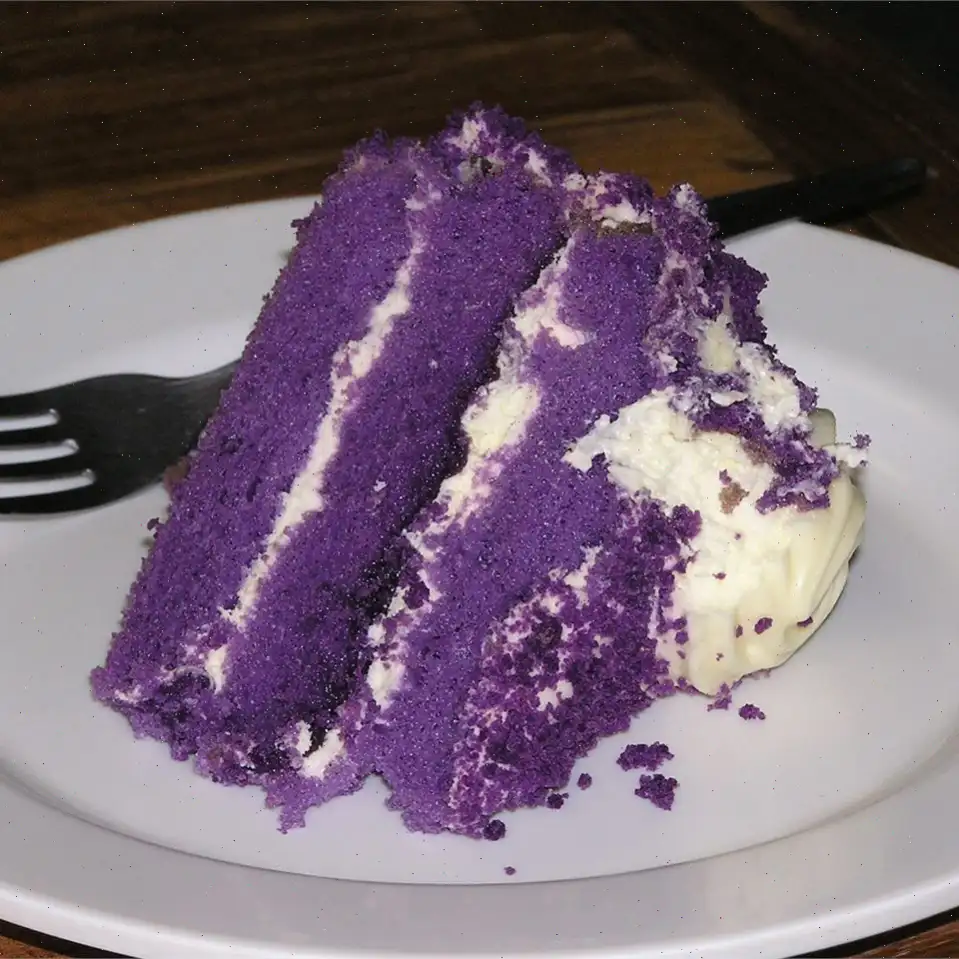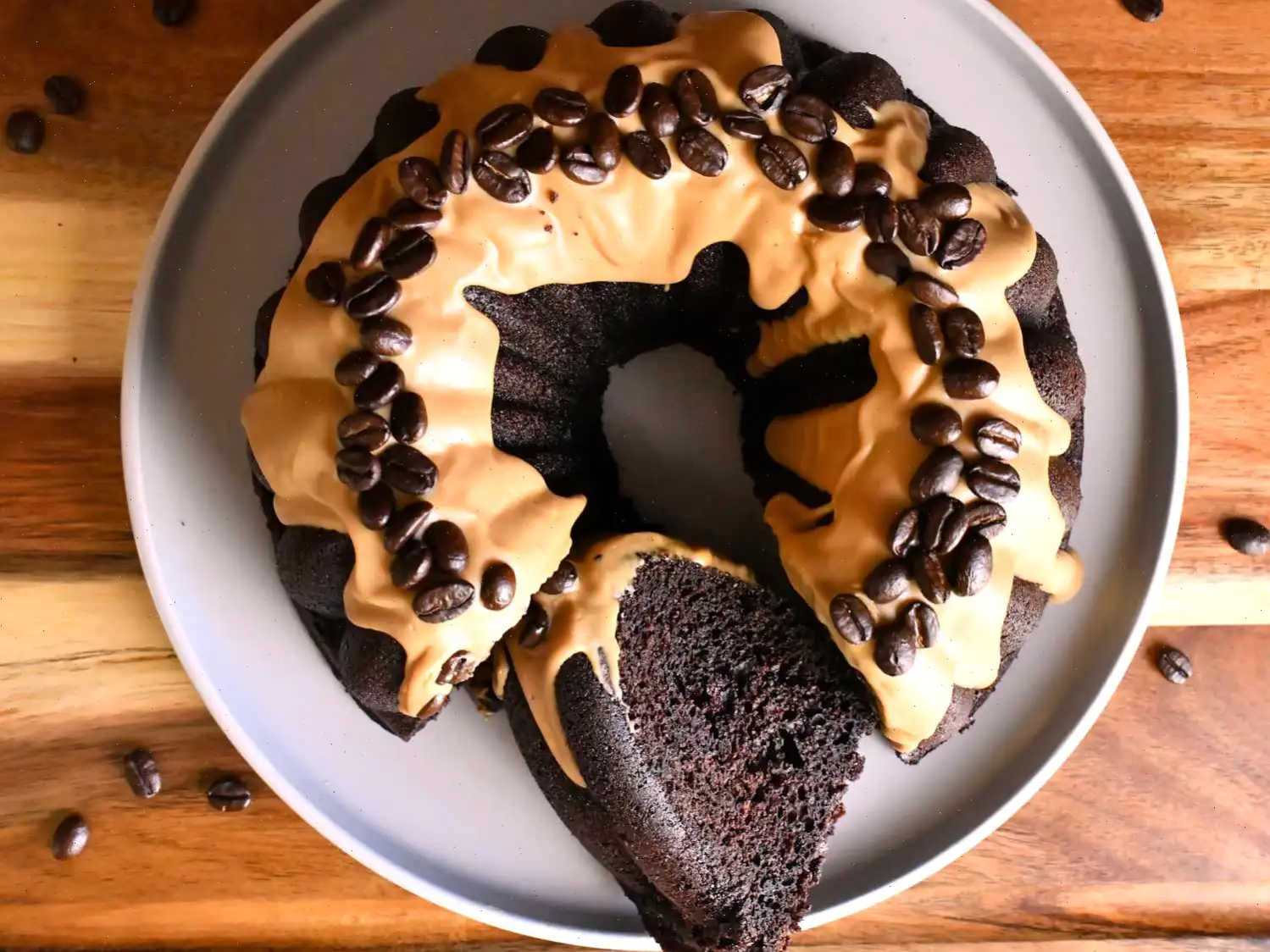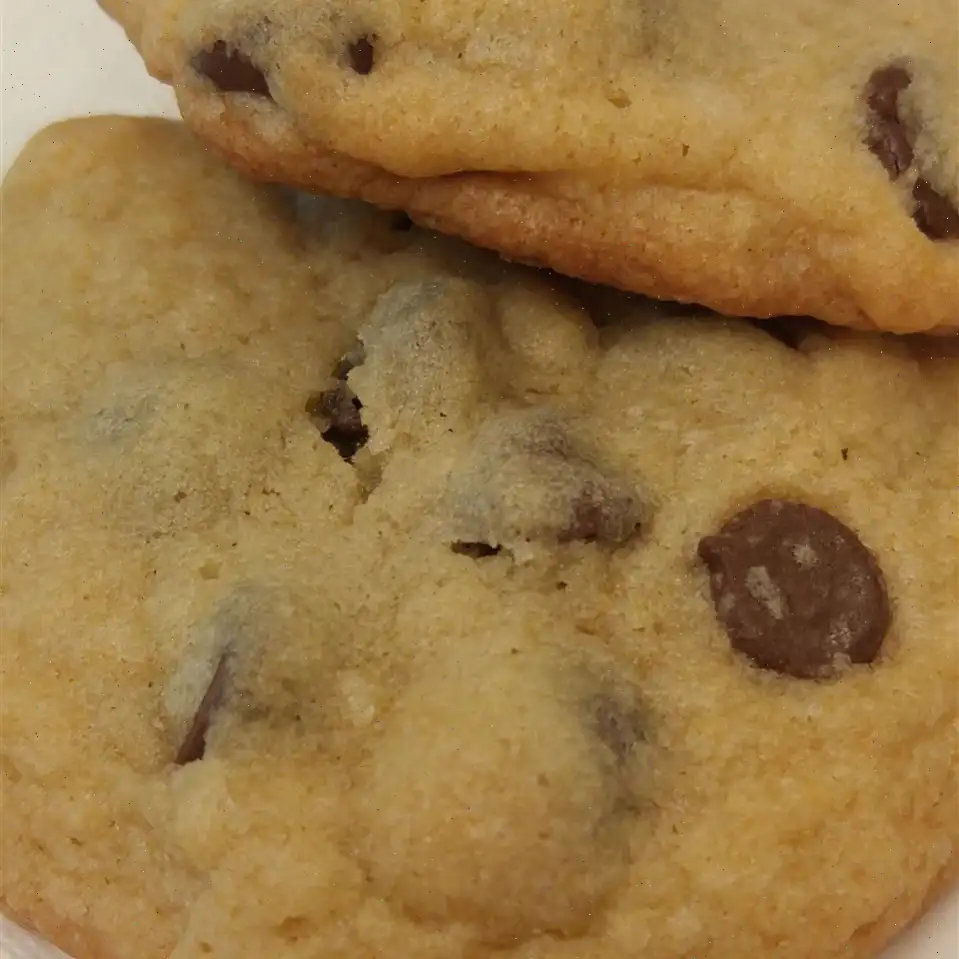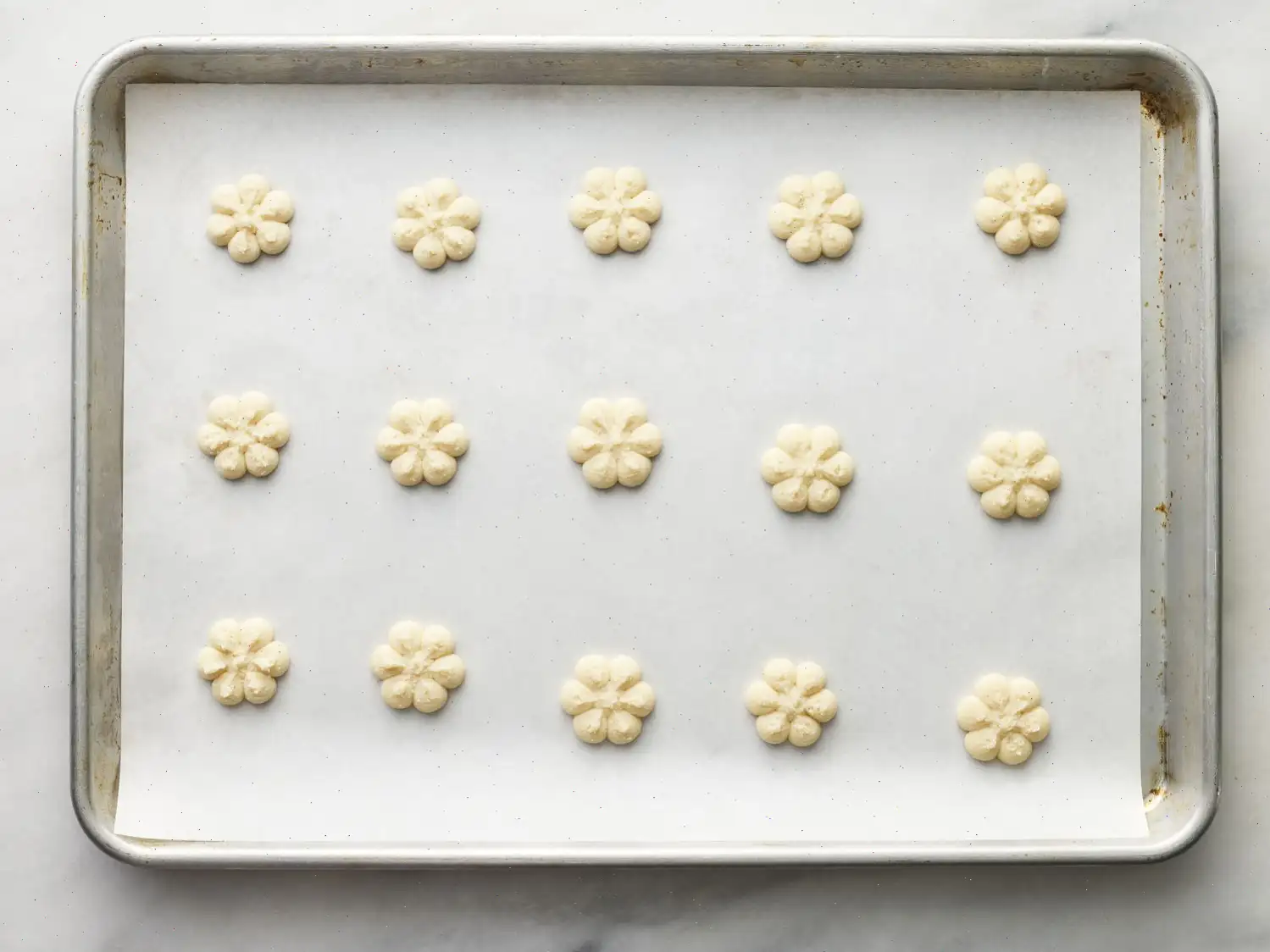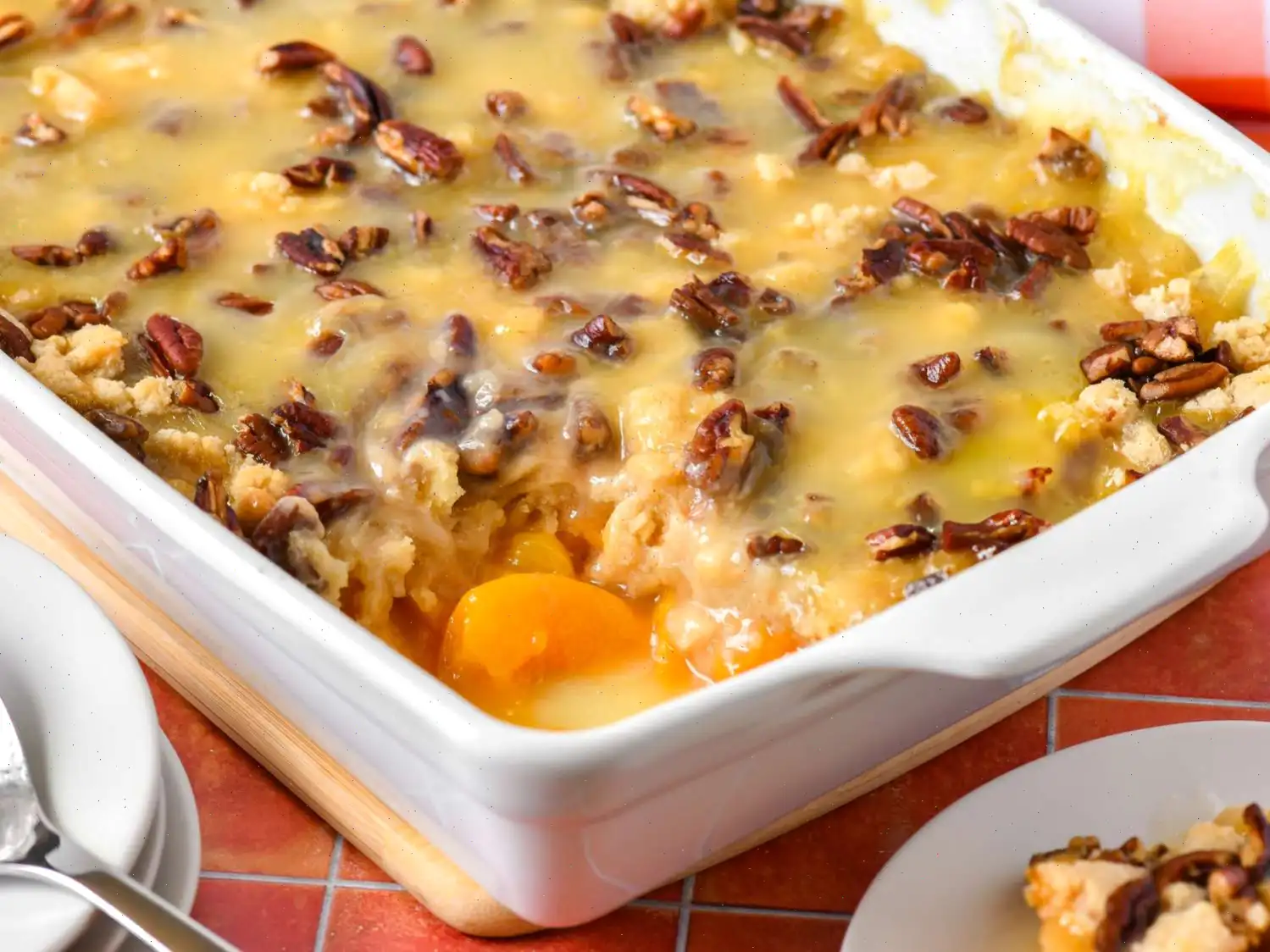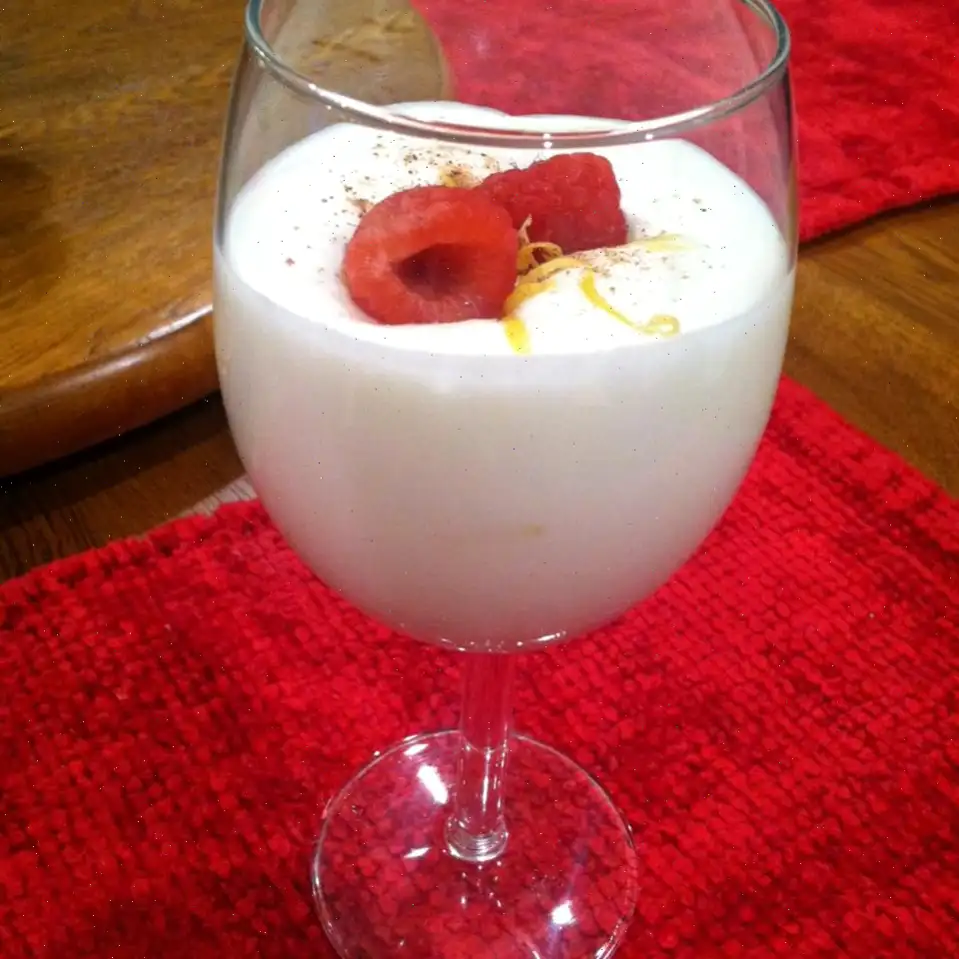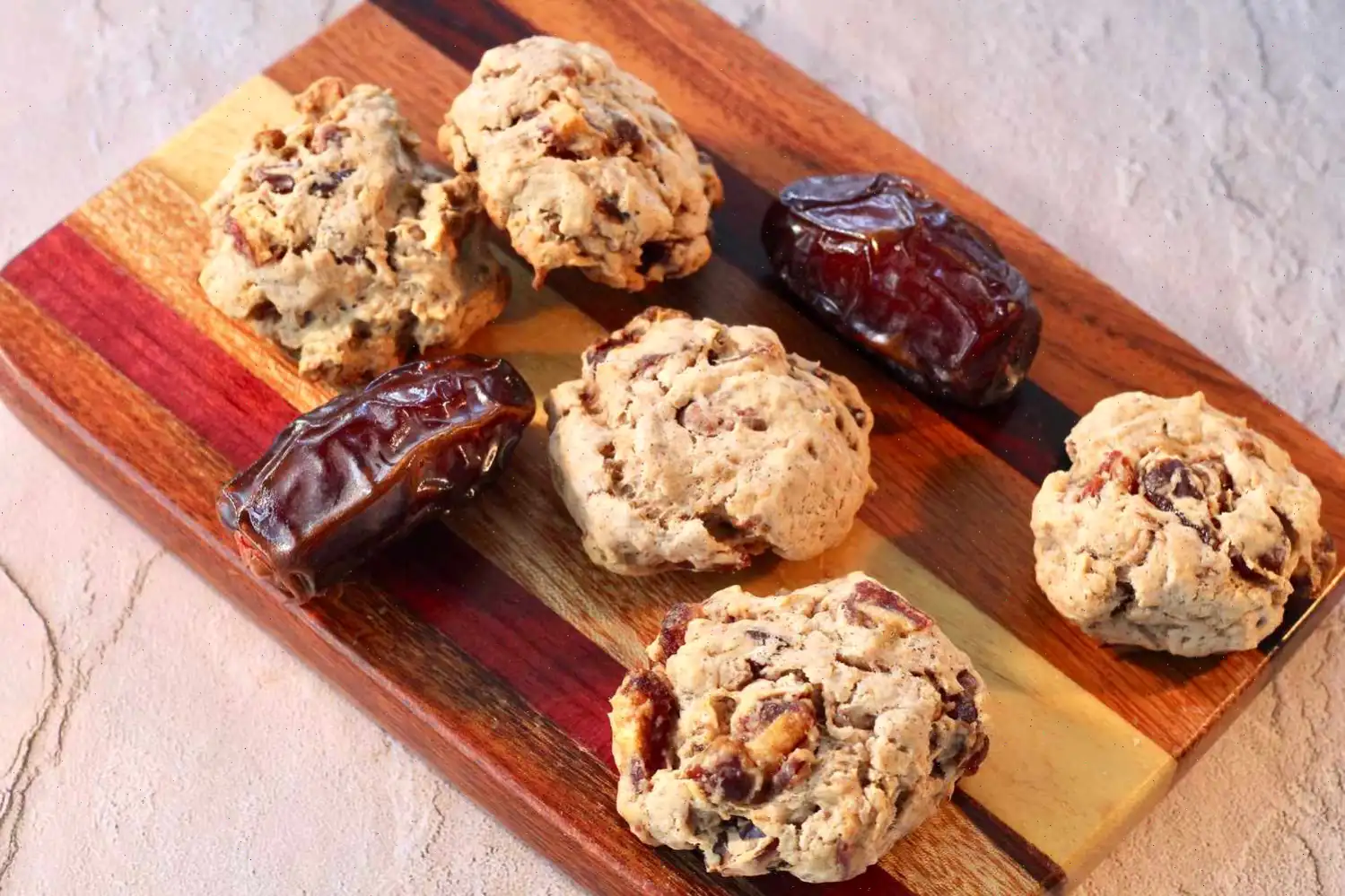
Ube-Macapuno Cake Recipe
This recipe is developed for 12 servings. Ingredient amounts are automatically adjusted, but cooking times and steps remain unchanged. Not all recipes scale perfectly.
Ingredients
Ube Cake:
- 2 cups cake flour
- 3 teaspoons baking powder
- 1 teaspoon salt
- 1 cup ube (purple yam), cooked and finely grated
- cup milk
- 1 teaspoon vanilla extract
- 7 egg yolks, lightly beaten
- cup corn syrup
- cup vegetable oil
- 7 egg whites
- 1 teaspoon cream of tartar
- 1 cup white sugar
- 6 drops red food color
- 6 drops blue food coloring
- 1 (12 ounce) jar macapuno (coconut preserves)
Buttercream:
- 1 cup evaporated milk, chilled
- cup white sugar
- 1 cup butter, softened
- 1 drop violet food coloring
Directions
Step 1: Preheat the oven to 325F (165C). Line the bottom of three 9-inch round pans with parchment paper, but do not grease them.
Step 2: To make the ube cake, mix the cake flour, baking powder, and salt in a large bowl. Set aside.
Step 3: Place the grated ube in a large bowl. In a separate bowl, combine cup of milk and 1 teaspoon of vanilla extract. Gradually blend this mixture into the ube until smooth.
Step 4: Add the egg yolks, corn syrup, and vegetable oil to the ube mixture. Stir in the flour mixture until smooth. Set this batter aside.
Step 5: In a separate bowl, combine the egg whites and cream of tartar. Beat with an electric mixer until foamy.
Step 6: Gradually add the sugar, followed by the red and blue food coloring. Continue beating until stiff peaks form.
Step 7: Fold 1/3 of the egg whites into the ube batter. Then gently fold in the remaining egg whites until no streaks remain in the batter.
Step 8: Pour the batter into the prepared pans and bake in the preheated oven for about 30 to 35 minutes, or until a toothpick inserted into the center of the cake comes out clean.
Step 9: Invert the pans onto a wire rack and let the cakes cool upside down. Once cooled, run a knife around the edges to loosen the cakes from the pans.
Step 10: Spread the macapuno (coconut preserves) over the cooled cake layers. Stack the layers on a cake stand or serving plate.
Step 11: To make the buttercream, combine the chilled evaporated milk and cup of sugar in a bowl. Set aside.
Step 12: In a large bowl, combine the softened butter and sugar. Beat with an electric mixer until smooth and creamy.
Step 13: Add the violet food coloring to the buttercream, one drop at a time, until you achieve the desired color.
Step 14: Frost the top and sides of the cake with the buttercream.
Nutrition Facts (per serving)
| Calories | Fat | Carbs | Protein |
|---|---|---|---|
| 714 kcal | 44g | 75g | 12g |
Percent Daily Values*
- Total Fat: 44g (56% DV)
- Saturated Fat: 13g (67% DV)
- Cholesterol: 168mg (56% DV)
- Sodium: 469mg (20% DV)
- Total Carbohydrate: 75g (27% DV)
- Dietary Fiber: 1g (3% DV)
- Total Sugars: 36g
- Protein: 12g (24% DV)
- Calcium: 232mg (18% DV)
- Iron: 4mg (19% DV)
- Potassium: 266mg (6% DV)
* Percent Daily Values are based on a 2,000 calorie diet. Your daily values may be higher or lower depending on your calorie needs.

The Ube-Macapuno Cake is a colorful and flavorful dessert that captures the essence of Filipino cuisine. Made from ube, a purple yam known for its striking color and unique taste, this cake is traditionally paired with macapuno, a sweet coconut preserve. It is often served during festive occasions, family gatherings, and as a special treat to guests.
History of Ube-Macapuno Cake
The use of ube in Filipino desserts dates back to the indigenous cultures of the Philippines, where purple yams were cultivated for their nutritional value and vibrant hue. Ube gained widespread popularity in the mid-20th century, especially after the development of ube halaya, a sweetened mashed ube dish often used as a topping or filling in various desserts. The Ube-Macapuno Cake emerged as a delightful fusion of ube's rich flavor and macapunos sweet, chewy texture, becoming a staple in Filipino celebration cakes.
Regional Variations
Ube-Macapuno Cake is commonly enjoyed across the Philippines, but each region has its own twist on the recipe. In the Visayan islands, for instance, it might be made with a lighter, fluffier sponge base, while in Luzon, the cake can be denser and more decadent. Some regions even incorporate other local ingredients, such as leche flan or coconut cream, to further enhance the cake's richness.
Differences from Similar Desserts
While Ube-Macapuno Cake shares some characteristics with other Filipino desserts, such as Ube Halaya and coconut-based cakes, it stands out due to its three-layered structure and the distinct combination of ube and macapuno. Ube cakes in general are known for their vibrant purple color, which is a defining feature of the dish. The addition of macapuno, a tender coconut preserve, brings a subtle sweetness and texture contrast, setting this cake apart from other Filipino cakes like the bibingka or mango float.
Where Its Typically Served
Ube-Macapuno Cake is typically served during significant Filipino events like birthdays, weddings, and Christmas. It is a beloved dessert in Filipino bakeries and restaurants both within the Philippines and in Filipino communities worldwide. The cakes unique flavor and appearance make it a popular choice for parties and gatherings, where its striking purple color always garners attention. In Filipino culture, food is often an expression of love, and this cake, with its sweet, rich taste, is a perfect way to celebrate special moments with loved ones.
Interesting Facts About Ube-Macapuno Cake
- Ube is not only delicious but also packed with nutrients, including antioxidants, fiber, and vitamins, making it a healthy alternative to other sweet ingredients.
- The name "Macapuno" refers to a specific variety of coconut that has a jelly-like texture. It's often used in Filipino desserts and is prized for its sweetness and unique consistency.
- Though Ube-Macapuno Cake is primarily known in the Philippines, it has gained international popularity and can now be found in many Filipino restaurants and dessert shops around the world.
- The cake's vibrant purple color comes from the ube, which contains anthocyanins, a type of antioxidant that gives the yam its distinct shade and provides health benefits.
- In addition to its sweetness, macapuno has a chewy texture that contrasts beautifully with the soft, fluffy layers of ube cake, creating a memorable eating experience.
Whether you're enjoying it at a festive gathering or as a special treat, Ube-Macapuno Cake is a delightful example of Filipino ingenuity in the kitchen. Its not just a cakeits a celebration of culture, flavor, and family!
You can listen to this recipe in AI audio format. Simply click the play button below to listen to the content in a format that suits you best. It’s a great way to absorb information on the go!
FAQ about Ube-Macapuno Cake Recipe
Comments
Paul Hall
01/24/2023 10:02:20 AM
Please note that Ube, pronounced as "OOH-bee," is available in various forms such as pre-cooked and mashed in a jar, as well as in packets in the frozen section. Both versions can be found in many Asian stores, often labeled as "ube" or "purple yam."
Michael Nguyen
10/15/2024 08:01:33 PM
This cake is fantastic! I prepared it for a friend's birthday, and it was a hit with everyone. However, I made a few tweaks: 1. The recipe suggested baking for 30 to 35 minutes, but I found that baking it for just 25 minutes resulted in a perfectly moist cake, contrary to what some other reviewers experienced with dryness. 2. I whipped up my own coconut buttercream icing using 2 cups of butter, 1 cup of sugar, and approximately half a cup of pureed macapuno. I spread the buttercream between each layer, added the macapuno, and coated the entire cake with it. The buttercream helped lock in the cake's moisture. Thanks for sharing this recipe!
Richard Hernandez
03/11/2024 10:05:19 AM
I have not personally baked this recipe, but I have come across comments mentioning issues with the icing not turning out well. I have experience baking cakes using a similar icing recipe, where I used a 1:1 ratio of evaporated milk and sugar. It is important to ensure that the sugar is completely dissolved and that the container used is dry with no traces of water. Additionally, adding the milk and sugar mixture to the butter gradually is key. I recommend giving it a try, as everyone who has tasted this butter icing has complimented its taste. For a stronger ube flavor, consider adding a teaspoon of ube flavoring.
Amy Lewis
08/12/2023 06:37:44 PM
Review: I made a cake using purple sweet potato instead of ube. It turned out delicious. However, the icing didn't work well with this recipe. The butter was fine, but as soon as I added the cold milk and sugar mixture, it seized and wouldn't blend properly. The final icing was too watery, with much more milk than required. I suggest using a traditional buttercream instead of this one.


